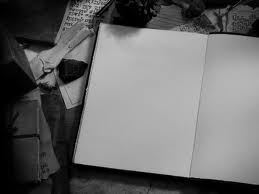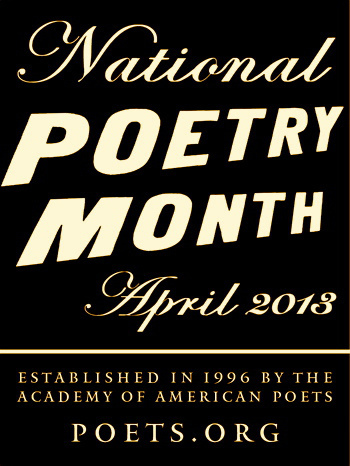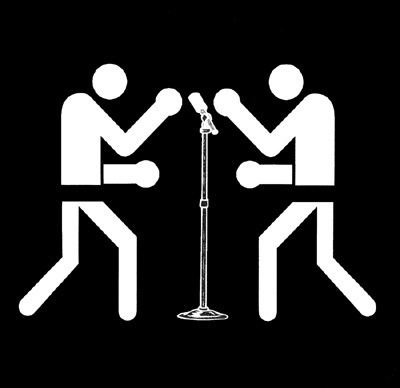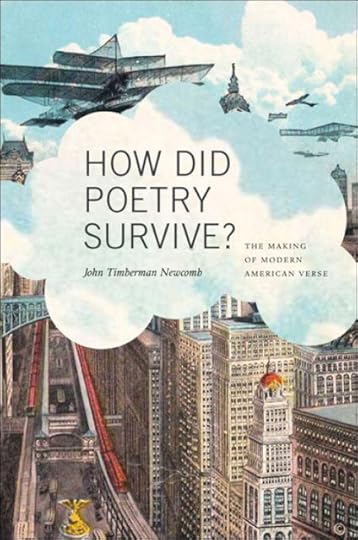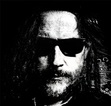R.M. Engelhardt's Blog: Burn Brightly, page 38
April 3, 2013
In Your Mind
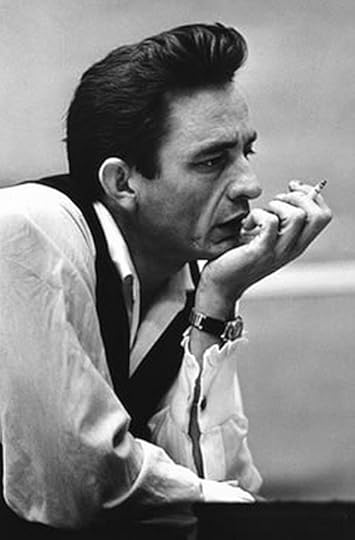
In Your Mind In your mind
one foot on Jacob’s ladder and one foot in the fire
and it all goes down in your mind
Livin’ at the bottom of the stairs of life
never a smile knockin’ on your door
the air is blue and so are you
prehistoric monsters on the floor
Last verse of your last song
and God don’t hear dead men
the end of the line is in your mind
then you’ll be stayin’ in
In your mind In your mind
Bone for bone and skin for skin
eye for eye and tooth for tooth
heart for heart and soul for soul
somebody said “What is truth”?
Lock it up and close it down
the sound of mournin’ like a dove
high beyond the rattlin’ roar
lookin’ to the face of love
[chorus:] In your mind In your mind
it all goes down in your mind
one foot on Jacob’s ladder and one foot in the fire
and it all goes down in your mind
In your mind In your mind
Sunday words are back again
and you eat your fundamentalist pie
but just a piece you understand
you get the rest up in the sky
Praise and glory, wounded angels
shufflin’ ‘round the room
eternity is down the hall
and you sit there bendin’ spoons
In your mind In your mind
Father, Son, and Holy Ghost
sacrificial drops of pain
on a silver plated cross
sanctification on a chain
Thay say redemption draweth nigh
the storms of silence from above
stop your ears and close your eyes
and try to find the face of love
~ Johnny Cash

April 2, 2013
The Poetic Justice of April 1 When was the last time you bought a contemporary book of verse?
“I also concluded that so many people who drifted into the writing of poetry didn’t have very interesting minds: a family member dies, they saw a tree of unusual shape, a little-known Matisse painting excited them, so they take to their computers and trivialize the subject or experience by encasing it in a more or less complex contraption of verbal self-absorption currently called a poem.”
~ The Wall Street Journal
Joseph Epstein-The Poetic Justice on April 1
_________________
The Poetic Justice of April 1
When was the last time you bought a contemporary book of verse?
Yet the stuff still gets published, prizes awarded.
By JOSEPH EPSTEIN
April, the poet told us, is the cruelest month. As it happens, it is also National Poetry Month, which makes its debut on April Fool’s Day. And the biggest fools of all may well be those who believe that contemporary poetry matters in the least except to those who, against a high barbed-wire wall of national indifference, continue solemnly to churn it out.
Poetry in our day is in the same condition as verse drama at the beginning of the last century: an archaic practice, a dead genre, a done deal. We still have people playing the role of major poets, but only because the world seems to require a few people to play the role: “In art, in medicine, in fashion we must have new names,” wrote Marcel Proust. We know the names: Seamus Heaney, Derek Walcott, John Ashbery, Adrienne Rich and a few others. It is only their poetry that we don’t know, or can’t be brought to care about.
In the room the poets come and go, / muttering, yo!, / where’s the prize and what’s the dough? But if I ask a literary gent or lady to quote me a single line or phrase from any of our putative major poets, they cannot do it. The magazines—the TLS, the New Yorker, Poetry and the rest—go on publishing the stuff, prize committees meet to issue awards and descant on the importance of poetry to civilization, but it is all finally an intramural game.
Like so many people of my rapidly diminishing generation, I walk around with lines and entire passages from the poetry of W.B. Yeats, T. S. Eliot, Robert Frost, Wallace Stevens, e.e. cummings, and others rattling around pleasantly in my head. But nearly all the poetry written since the years those poets wrote doesn’t register, resonate, ring, do any of the elevating things that poetry is supposed to, and once indeed did, do.
When was the last time you bought a book of verse by a contemporary poet? My guess is around the same time that I did—the 12th of Never, if a precise date is wanted. And this tends to be true of genuine literateurs, lovers of language and its artful deployment. W.H. Auden said that if one were born later than the 1890s one had no chance to become a major poet. (He was born in 1907 but somehow got his bulky body over the bar.) Philip Larkin, who may not have been a major poet, at least created some memorable but not necessarily newspaper-publishable lines and phrases: “They [you-know-what] you up, your mum and dad.”
But otherwise the poetry game is over, kaput, fini, time, gentlemen, time. This even though reams and reams of the stuff gets published, prizes awarded, poets laureate appointed to the resounding boredom of all but those who either write or teach poetry (usually one and the same people). Years ago I wrote an essay on this subject called “Who Killed Poetry?,” which stirred up beehives of poets in protest. I suggested that the academicization of poetry did a lot to help kill it; I also concluded that too much poetry was in production, with Gresham’s Law relentlessly at work, in this instance the crappy driving out the second-rate. I also concluded that so many people who drifted into the writing of poetry didn’t have very interesting minds: a family member dies, they saw a tree of unusual shape, a little-known Matisse painting excited them, so they take to their computers and trivialize the subject or experience by encasing it in a more or less complex contraption of verbal self-absorption currently called a poem.
I now wonder if quite as considerable a reason for the death of poetry is that the international attention span has been much reduced by so many fresh distractions, leaving fewer and fewer people who have the patience and intellectual curiosity to work out the rich complexity of a well-wrought poem—that is, if anyone is around who could actually produce one. My main point is that if any of your children or grandchildren comes to you and declares a wish to become a poet, send that child directly off to bed without any dinner, and return to your place on the couch before the television set.
Mr. Epstein is the author, with Frederic Raphael, of “Distant Intimacy: A Friendship in the Age of the Internet,” published this week by Yale University Press. This op-ed is based in part on the book.
A version of this article appeared April 1, 2013, on page A13 in the U.S. edition of The Wall Street Journal, with the headline: The Poetic Justice of April 1.
http://online.wsj.com/article/SB10001424127887323296504578394062941426822.html

April 1, 2013
since feeling is first
who pays any attention
to the synt...
since feeling is first
who pays any attention
to the syntax of things
will never wholly kiss you;
wholly to be a fool
while Spring is in the world
my blood approves,
and kisses are better fate
than wisdom
lady i swear by all flowers. Don’t cry
—the best gesture of my brain is less than
your eyelids’ flutter which says
we are for each other: then
laugh, leaning back in my arms
for life’s not a paragraph
And death i think is no parenthesis’
APRIL 2013
Poetry Slams Do Nothing To Help The Art Form Survive
Poetry is dying. Actually, it’s pretty dead already for all intents and purposes and the rise of performance poetry slams is doing nothing to help matters. I know, I used to be a performance poet.
The first poetry slam competition was held in Chicago in 1984. Named after a brutal wrestling move, the slam saw poets perform original pieces for a live audience who voted for a winner. The early slam poets railed against what they pejoratively referred to as page poetry. They demanded, along with Bukowski, that poetry “have guts”. They wanted to democratise poetry and drag it from the academic ivory tower.
But there never was an ivory tower. There was no cabal of posh people who had purposely made poetry unintelligible. Poetry has always been words on a page, open to anyone. The politicisation of art and the drawing of sectarian lines continues to damage poetry to this today.
Like sipping a fine wine, reading poetry cannot be rushed. It reveals its pleasures over time, rewarding the careful reader with something new and beautiful each time. It runs bang against the grain of our quick-fix culture. It is already a lost discipline. I have taught poetry to hundreds of children aged seven to 14 and not one of them could name me a poet beyond Shakespeare.
A further nail in the coffin is the rise of poetry slams. I have performed at many slams and the audience is almost always half drunk and if you want to win you have to pitch your poem pretty low. The result is a scene rife with the poetic equivalent of nob jokes – and plenty of actual nob jokes.
The only division in poetry is between those people willing to take the time to read it and those who will not. When Emily Dickinson said only “the fairest” may enter her house of “possibility”, she wasn’t being elitist –she was putting up a barrier against the lazy.
Most slam poems are not strong enough to be published in even minor poetry journals. And that’s fine; maybe they don’t want to be. Then why attack the poems that do? It’s like there is an oedipal urge to kill the art that made it. We cannot allow slam poetry to replace the role poetry plays in our lives. The threat is there.
There is a school of thought that thinks slams are the answer. The slams I have attended have little to do with poetry and everything to do with a Darwinian death match where the audience picks the winner like some blood-crazed Circus Maximus mob.
Poetry, like all art, whispers its message and we must learn to slow down and take the time to hear it.
~ NATHAN A THOMPSON
FRIDAY 01 FEBRUARY 2013


March 31, 2013
Easter, 1916
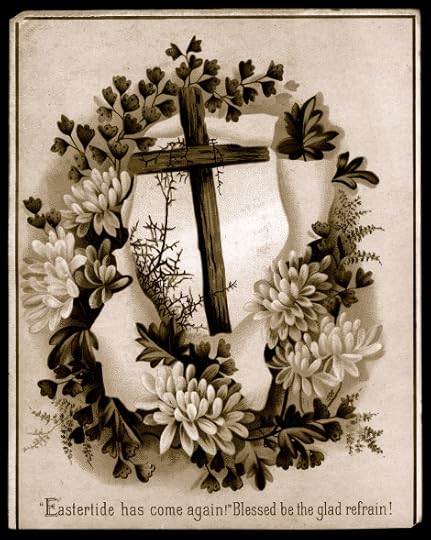
I have met them at close of day
Coming with vivid faces
From counter or desk among grey
Eighteenth-century houses.
I have passed with a nod of the head
Or polite meaningless words,
Or have lingered awhile and said
Polite meaningless words,
And thought before I had done
Of a mocking tale or a gibe
To please a companion
Around the fire at the club,
Being certain that they and I
But lived where motley is worn:
All changed, changed utterly:
A terrible beauty is born.
That woman’s days were spent
In ignorant good-will,
Her nights in argument
Until her voice grew shrill.
What voice more sweet than hers
When, young and beautiful,
She rode to harriers?
This man had kept a school
And rode our wingèd horse;
This other his helper and friend
Was coming into his force;
He might have won fame in the end,
So sensitive his nature seemed,
So daring and sweet his thought.
This other man I had dreamed
A drunken, vainglorious lout.
He had done most bitter wrong
To some who are near my heart,
Yet I number him in the song;
He, too, has resigned his part
In the casual comedy;
He, too, has been changed in his turn,
Transformed utterly:
A terrible beauty is born.
Hearts with one purpose alone
Through summer and winter seem
Enchanted to a stone
To trouble the living stream.
The horse that comes from the road,
The rider, the birds that range
From cloud to tumbling cloud,
Minute by minute they change;
A shadow of cloud on the stream
Changes minute by minute;
A horse-hoof slides on the brim,
And a horse plashes within it;
The long-legged moor-hens dive,
And hens to moor-cocks call;
Minute by minute they live:
The stone’s in the midst of all.
Too long a sacrifice
Can make a stone of the heart.
O when may it suffice?
That is Heaven’s part, our part
To murmur name upon name,
As a mother names her child
When sleep at last has come
On limbs that had run wild.
What is it but nightfall?
No, no, not night but death;
Was it needless death after all?
For England may keep faith
For all that is done and said.
We know their dream; enough
To know they dreamed and are dead;
And what if excess of love
Bewildered them till they died?
I write it out in a verse—
MacDonagh and MacBride
And Connolly and Pearse
Now and in time to be,
Wherever green is worn,
Are changed, changed utterly:
A terrible beauty is born.
_____________
FOOTNOTES: September 25, 1916
Source: The Collected Poems of W. B. Yeats (1989)


March 30, 2013
THE NEW VERSE MOVEMENT HAS ARRIVED
THE NEW VERSE MOVEMENT HAS ARRIVED

THE “NEW VERSE MOVEMENT” HAS ARRIVED.
THE SCHOOL OF NIGHT
OPEN MIC FOR POETS, POETRY
& WRITERS RETURNS TO DOWNTOWN
ALBANY, NY ON THURSDAY, APRIL 11TH
The Pearl Street Pub & Dirty Martini Lounge In Albany
NO RULES. NO SCORES. NO AGENDAS.
JUST YOUR WORDS ARE REQUIRED.
7:30pm Sign Up * 8pm Start


Edward Thomas : The Poetry Foundation
Edward Thomas : The Poetry Foundation.
Edward Thomas
1878–1917

Adlestrop
Yes. I remember Adlestrop—
The name, because one afternoon
Of heat the express-train drew up there
Unwontedly. It was late June.
The steam hissed. Someone cleared his throat.
No one left and no one came
On the bare platform. What I saw
Was Adlestrop—only the name
And willows, willow-herb, and grass,
And meadowsweet, and haycocks dry,
No whit less still and lonely fair
Than the high cloudlets in the sky.
And for that minute a blackbird sang
Close by, and round him, mistier,
Farther and farther, all the birds
Of Oxfordshire and Gloucestershire.
Source: Poems (1917)
Despite affinities with the Georgian movement of the early twentieth century, Edward Thomas’s verse consistently defies classification. Like the work of his Georgian contemporaries, his verse displays a profound love of natural beauty and, at times, an archaic use of diction. However, Thomas’s personalized voice and intensity of vision give his poetry an artistic force which the Georgians never approached.
Thomas was born of Welsh parents in London. His father was a railway clerk who neglected his six sons in favor of politics and intellectual pursuits. Temperamentally, he was the opposite of his son, and the two disagreed on nearly all matters, including Thomas’s desire for a literary career. Much later Thomas was to portray this adversarial relationship with his father in the poem “P.H.T.” In 1894, while attending St. Paul’s School, Thomas met the successful literary journalist James Ashcroft Noble, who encouraged Thomas in his literary ambitions and was instrumental in getting his first book, The Woodland Life, accepted for publication. Shortly thereafter, while still a student at Lincoln College in Oxford, Thomas married Noble’s daughter, Helen. Faced with the necessity of supporting a growing family, Thomas began accepting assignments of all sorts from London publishers. Much of the work he received was uncongenial hack-work, but Thomas wrote steadily, sometimes producing as many as three books a year. His work included essays, natural history, criticism, biographies, reviews, fiction, introductions, and topographical descriptions. Thomas wrote his first poems in 1914 at the urging of the American poet Robert Frost. Two years later his first book of verse, Six Poems, was published. Due to Thomas’s fear that it would be unfairly dismissed by the critics if it were published under his own name, this collection was published under the pseudonym of Edward Eastaway. These six were the only poems that Thomas lived to see in print: in 1915 he enlisted in the infantry and was killed two years later in the Battle of Arras, while the first edition of his Poems was being prepared for press.
Thomas’s many reviews and critical studiesisuch as Richard Jefferies, Walter Pater,and The Feminine Influence on the Poetsirepresent the best of his prose work. Much of Thomas’s prose was written according to the demands and deadlines of his publishers. Many critics believe that Thomas wasted his talents on hack work, and the author himself felt that his artistic potential was being destroyed under the strain of constant production. In spite of these circumstances, Thomas developed into a respected critic, and his reviews for various newspapers and journals were widely quoted. All of Thomas’s criticism has been praised for its lucid style, precision of speech, and intelligent observations. Vernon Scannell has said that Thomas’s “verse criticism shows not merely an intuitive awareness of what poetry should be about, but an intelligent familiarity with refinements of technique and a fine sense of the historical continuity of English literature.”
While an accomplished prose writer, Thomas is of far more interest for the poetry which he began to write relatively late in his career. From his first poems, Thomas demonstrated, according to John Lehmann, an “intensity of vision” which set him apart from his contemporaries. His earliest poems bear the influence of Frost in their treatment of nature and in their simple style. However, Frost’s influence was to decrease as Thomas discovered his own personal voice. Numerous critics, including Jeremy Hooker and J. P. Ward, have stressed the two principal themes in Thomas’s verse: one, the presence of war and its effect on the individual; the other, the poet’s profound sense of solitude. Though he wrote only one war poem per sei“This Is No Case of Petty Right or Wrong”ithroughout his poetry Thomas subtly portrays the influence of war on the natural order. Thomas’s sense of solitude has led Ward to consider him an early existentialist. Though this might be an isolated point of view, most critics agree that Thomas remains appealing to the modern readeriwhile many of his contemporaries have fallen out of favoribecause his poetry expresses an awareness of individual alienation commonly associated with existentialism.
Such prominent critics and authors as Walter de la Mare and Aldous Huxley have called Thomas one of England’s most important poets. In recent years much serious consideration has been given to Thomas’s work. Most critics would agree with Andrew Motion, who states that Thomas occupies “a crucial place in the development of twentieth-century poetry” for introducing a modern sensibility, later found in the work of such poets as W. H. Auden and Ted Hughes, to the poetic subjects of Victorian and Georgian poetry.
BIBLIOGRAPHY
WRITINGS:
POETRY
(Under pseudonym Edward Eastaway) Six Poems,Pear Tree Press, 1916.
Poems,Holt, 1917.
Last Poems,Selwyn & Blount, 1918.
Collected Poems,Selwyn & Blount, 1920, Seltzer, 1921, enlarged edition, Ingpen & Grant, 1928, reprinted, Faber & Faber, 1979.
Two Poems,Ingpen & Grant, 1927.
The Poems of Edward Thomas,edited by R. George Thomas, Oxford University Press, 1978.
Edward Thomas: A Mirror of England, edited by Elaine Wilson, Paul & Co., 1985.
CRITICISM
Richard Jefferies, His Life and Work,Little, Brown, 1909.
The Feminine Influence on the Poets,Secker, 1910, John Lane, 1911.
Maurice Maeterlinck,Dodd, Mead, 1911.
Algernon Charles Swinburne, A Critical Study,Kennerley, 1912.
George Borrow, The Man and His Books,Dutton, 1912.
Lafcadio Hearn,Houghton Mifflin, 1912.
Walter Pater, A Critical Study,Kennerley, 1913.
Keats,Dodge, c.1916.
A Literary Pilgrim in England, Dodd, Mead, 1917, Oxford University Press, 1980.
ESSAYS
Horae Solitariae,Dutton, 1902.
Beautiful Wales,Black, 1905.
The Heart of England,Dutton, 1906.
The South Country,Dutton, 1909, Tuttle, 1993.
Rest and Unrest,Dutton, 1910.
Light and Twilight,Duckworth, 1911.
The Last Sheaf, Cape, 1928.
PROSE
The Woodland Life(essays and diary), Blackwood, 1897.
Oxford,Black, 1903.
Rose Acre Papers,Brown, Langham, 1904.
Windsor Castle,Blackie, 1910.
The Tenth Muse,Secker, 1911.
Celtic Stories,Clarendon (Oxford), 1911, Clarendon (New York, NY), 1913.
The Isle of Wight,Blackie, 1911.
Norse Tales,Clarendon, 1912.
The Happy-Go-Lucky Morgans(novel), Duckworth, 1913.
The Icknield Way,Dutton, 1913.
The Country,Batsford, 1913.
In Pursuit of Spring,Nelson, 1914.
The Life of the Duke of Marlborough(biography), Chapman & Hall, 1915.
Cloud Castle and Other Papers,Dutton, c.1923.
The Childhood of Edward Thomas(autobiography), Faber, 1938.
The Friend of the Blackbird,Pear Tree Press, 1938.
The Prose of Edward Thomas,edited by Roland Gant, Falcon Press, 1948.
A Pilgrim and Other Tales(short stories and essays), Tuttle, 1992.
Four-and-Twenty Blackbirds (fairy tales), Duckworth, 1915.
LETTERS
The Letters of Edward Thomas to Jesse Berridge: With a Memoir by Jesse Berridge, Enitharmon Press (London, England), 1983.
Letters to America, 1914-1917, Tragara Press (Edinburgh, Scotland), 1989.
Letters to Helen: And an Appendix of Seven Letters to Harry and Janet Hooten, Carcanet (Manchester, England), 2000.
FURTHER READING
FURTHER READINGS ABOUT THE AUTHOR:
BOOKS
Leavis, F. R., New Bearings in English Poetry,Chatto & Windus, 1932.
Thomas, R. George, Edward Thomas: A Portrait, Oxford University Press, 1985.
back to top


Where’s The Waltz Lady?
March 29, 2013
How Did Poetry Survive?
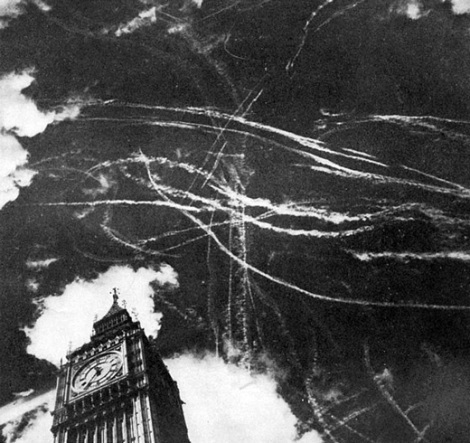
Poetry, John Timberman Newcomb believes, has lost status in recent years. In the introduction to his new book, How Did Poetry Survive? The Making of Modern American Verse (University of Illinois Press), Newcomb argues that American poetry has been “segregat[ed] … from modern social experience” — with the result that poetry is hardly even considered “literature” anymore.
This isn’t the first time that American poetry’s star has waned. In How Did Poetry Survive?, Newcomb traces the genre’s changing fortunes at the turn of the 20th century, arguing that poets’ engagement with modern topics and “ordinary life” played a key role in their works’ return to widely acknowledged cultural relevance.
Newcomb, associate professor of English at the University of Illinois at Urbana-Champaign, believes that this history merits study not only for the value of the works that have been largely forgotten, but also for the light it sheds on poetry’s current struggles — and its uncertain future.
Inside Higher Ed interviewed Newcomb via e-mail to find out more about his book.
Q: You write that your book differs from most other depictions of the emergence of modern American poetry. What is new or unusual about your account?
A: Most histories of modern American poetry written since around 1945 emphasize the stylistic innovations of the 1910s and 1920s, especially Imagism and free verse, and also focus narrowly on just a few canonical figures, as if they produced their great works in a vacuum. In contrast, mine balances an emphasis on formal innovation with American poets’ bold turn toward modern subject matter, especially the industrial city as the defining space of 20th-century experience. I also cast a much wider net than most, discussing works by dozens of poets, often juxtaposing well-known and nearly forgotten poems written on similar subjects in order to provide a more comprehensive sense of the variety and richness of the “New Poetry” movement.
Q: What does it mean to “make visible another possible past for modern American poetry,” and why is it important to do so?
A: In the decades after 1945, the number of early 20th-century American poets considered worth studying in an academic context diminished from dozens to just a few, which I consider a great loss to our sense of our own literature. In essence, the scholarship of the postwar era created a particular and rather narrow past for modern American poetry focused around a few titanic figures.
But if you look back at surveys of contemporary verse written before 1945, you find that a great many more poets were taken seriously as artists. It may be surprising to realize that among those eventually “lost” were some of the most popular writers of the day. Among many others, Carl Sandburg, Edna St. Vincent Millay, Amy Lowell, Sara Teasdale, Vachel Lindsay, and even Robert Frost to some extent were dismissed from the academic canon, in part precisely because they were popular among a general reading public. I feel that a past that ignores writers so influential in their own time is woefully incomplete, and thus my work attempts to create a more inclusive and comprehensive version of American poetry’s past.
Another part of the lost past I hope to return to general awareness is the vast and rich vein of poetry that engaged the urgent social and political issues of the day. During the 1910s, the two most significant categories of this socially oriented verse dealt with the struggles of organized labor and the catastrophe of world war. By taking these poems seriously as works of art as well as historical documents, my book seeks to enhance our sense of modern poetry’s value as a form of social comment.
Q: “In 1850,” you write, “poetry was the central genre of American literary culture. Fifty years later it was widely viewed as a mawkish refuge for dilettantes and sentimentalists.” What was the cause of this seismic shift?
A: These 50 years were defined by breakneck change, in which the United States transformed itself from a predominantly rural confederation of states into a world power of industrial capitalism. Great cities grew, vast concentrations of wealth were accumulated, giant logistical systems were developed, newspapers and other consumer goods were marketed on a mass national scale, and new technologies drastically altered the pace and complexity of everyday life. While often exhilarating, such changes also created tremendous psychic disorientation, and that led to a need for refuge. In the years after the Civil War, poetry was seized upon as such a psychic refuge, the antithesis and ostensible antidote to the accelerating pace and growing impersonality of everyday experience. Its aging custodians, deploring the “unpoetic” times, clung to rules of form and elevated standards of diction codified decades or even centuries earlier, and demanded portrayals of American life in nostalgic pastoral imagery – as if by excluding the voices and spaces of the city they might nullify the destabilizing force of urban-industrial modernity.
Confined to this nostalgic and escapist role, poetry became less and less relevant to most people’s lives. By the mid-1890s, when the last of the revered “Fireside poets” died and no younger writers seemed worthy to assume their places, we begin to find numerous commentaries wondering whether literary poetry was, quite simply, obsolete in a world of hard-headed prose and instantly consumable cultural commodities such as dime novels and popular songs. The great achievement of the New Verse movement of the 1910s was to make poetry relevant again by immersing it into the spaces, technologies, and social dynamics of the modern city.
Q: You mention “poetry’s current disciplinary crisis in the American academy.” What is the nature of this crisis?
A: Since the advent of more historically-based approaches in the literary academy in the early 1990s, poetry has declined noticeably in its status among scholars of American literature relative to prose fiction and other forms of prose. In fact, one major book of scholarly essays on New Historicism and American literature contains no work dealing with poetry at all, as if “American literature” was to be understood entirely as American fiction. There’s a perception around that poetry and history don’t mix, or that poems don’t speak to historical contexts as vividly as prose works do. I don’t believe this is true, and I hope my book shows that many poems of the 1910s and 1920s spoke powerfully to the most pressing concerns of modern American life at that moment.
Q: Are there lessons from the “New Verse movement” for those who might like to see a “further revival [of American poetry] in the 21st century”?
A: Don’t turn your back on the world around you, or on history, or on “ordinary life.” I am not an expert in very recent American poetry so it’s presumptuous for me to say so, but some recent verse I’ve read seems primarily or entirely concerned with the inner life of the poet — his or her responses to the natural world, to works of art, to somewhat rarefied emotional states. Lyric poetry addresses these precious aspects of being human better than any other form of writing, and this will, I hope, never stop being the case. But poetry can and must also speak to the mundane, the political, the technological — to every aspect of 21st-century experience.
Poetry can also tell great stories: one recent work of narrative verse I would strongly recommend for its success in balancing the political, personal, and historical is David Mason’s Ludlow, which juxtaposes the story of a violent labor conflict in Colorado in the 1910s with the author’s reminiscences of childhood and his adult experiences.
Q: Who is your intended audience for this book? What do you hope they’ll take away from it?
A: I hope that students, teachers, and anyone else interested in 20th-century poetry would find the book illuminating, and I tried to avoid using overspecialized jargon that might make it less comprehensible or appealing to readers who aren’t specialists in the field.
I hope that readers would come away from it with a refreshed sense of how much lively and potent poetry was written during this era, much of it nearly unknown now. I also hope that at least one poet will appeal to readers so strongly that they will seek out more of that poet’s work. One way to do this is to visit the companion web anthology that contains the full text of every poem mentioned in the book.
~ By Serena Golden


Burn Brightly
~ R.M. Engelhardt ...more
- R.M. Engelhardt's profile
- 23 followers


